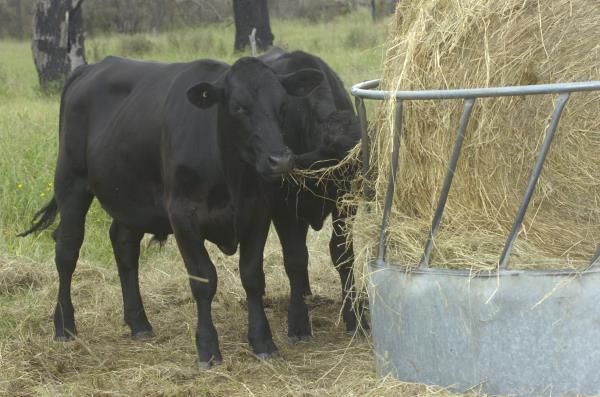By FRANK MICKAN
EXTREMELY dry weather is likely to continue for the next few months in Gippsland.
Silage yields have reportedly been reduced by 40 to 80 per cent but they are of higher quality than normal.
Hay yields are also likely to be substantially reduced if lower than average rainfall continues.
This problem is not isolated to Gippsland so fodder may also be in reduced supply.
Sourcing other supplementary feeds may be an alternative in the short to medium term.
Alternative feeds are not common so advice from nutritionists or other experts should be sought to ensure the cows’ diet is balanced to avoid potential milk component and animal health problems.
Owners should be wary of sourcing ‘cheap’ alternative feeds as often, when transport and dry matter (DM) content are taken into account, they may not be as inexpensive as first thought.
They need to be carefully assessed on a physical appearance, dry matter and nutritional basis to determine their usefulness and their final cost landed on farm.
Such feeds are canola silage and hay, potato slivers, grape marc, Palm Kernel Extract or PKE almond hulls and citrus pulp lollies and bread etc.
They can be a valuable source of energy, protein or fibre.
A feed analysis is essential to determine the nutritive value of energy, protein, neutral detergent fibre (NDF), as well as ash and fat, of any feed being purchased.
Many alternative feeds might be either high in energy or crude protein but often not both and some are very low in fibre.
This means care must be taken to balance the nutrient intake from all feeds in the diet.
Feeds containing chemical residues or other banned substances can have serious legal ramifications not only for a particular owner but also for the whole industry.
Maximum residue limits (MRLs) are set for chemicals in food commodities and animal feeds and must not be exceeded in food products such as milk or meat, including cull animals.
Before buying alternative feeds, owners should obtain an accurately filled in Fodder Vendor Declaration (FVD) or a By-product Vendor Declaration (BVD).
Some rations contain significant levels of some alternative feeds and may need additives such as minerals.
An example of this might be use of limestone and salt to provide calcium and sodium with feeding out of rice straw.
Others may require extra fibre to be fed to the cow where diets are low in NDF in order to avoid sub-acute rumen acidosis (SARA) or severe acidosis.
Some feeds are very moist, eg. citrus or carrot pulp, so the storage bunker and feedout equipment must be suitable to handle them.
Palm Kernel Extract (PKE) can be difficult to “drop out” of some silos and some feeds may need a cover for wet weather to avoid spoiling.
Many food waste products such as bread and lollies may contain plastic bags, ties and tags while others may contain metal, gravel and wood.
These foreign objects may be labour intensive to remove and may constitute a health hazard to the cows or be a future environmental problem.
Dead animals in stored products, such as mice in bales of whole crop cereal silage, may cause botulism, and some types of mould can be toxic with both potentially causing animal deaths.
For a more comprehensive information on many alternative feeds, issues to be considered and some management suggestions, please contact Frank Mickan at email frank.mickan@ecodev.vic.gov.au.
– Frank Mickan, is a senior dairy extension officer








